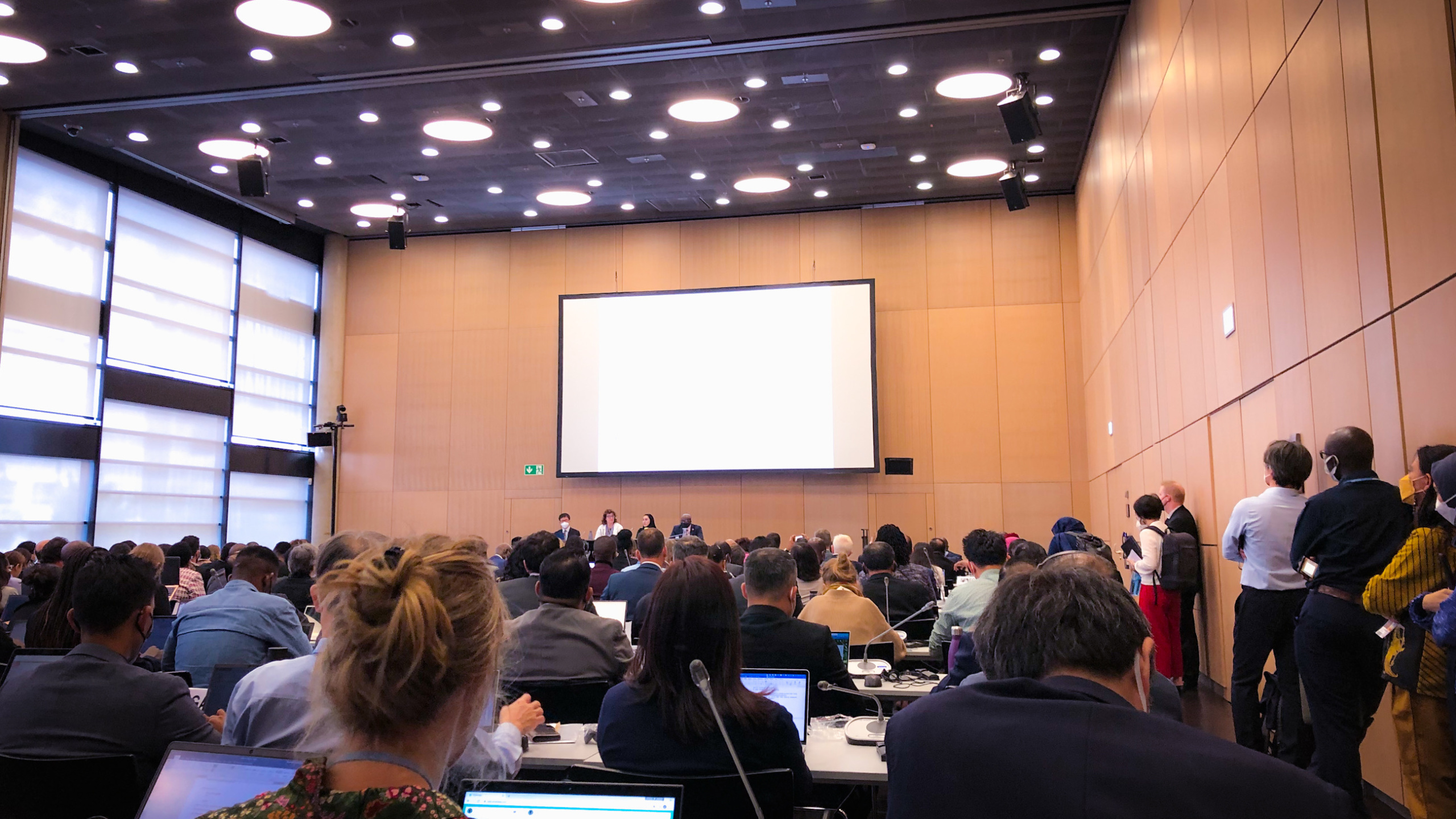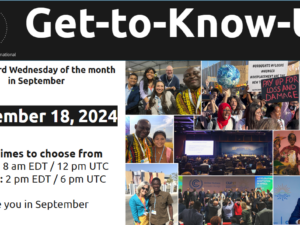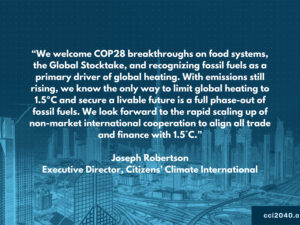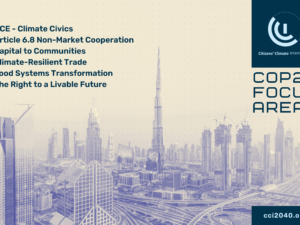
The SB56 round of UNFCCC negotiations has closed in Bonn. We can report there was progress on technical matters, but not yet a significant raising of ambition or acceleration of the overall climate crisis response. For us, the big news was that non-market approaches to achieving that acceleration are now being actively invited and pursued, and civic participation and stakeholder engagement were called for across agenda items.
In 2014, we proposed the PARIS Principles, which called for pricing pollution, adding momentum, reducing emissions effectively and accountably, internalizing inefficiencies, and spreading pollution pricing and emissions reduction by aligning across policy areas and across borders. The aim was to set a standard for strong emissions reduction policies that also strengthened household incomes and community economies.
Article 6.8 of the Paris Agreement doesn’t specifically call for pricing pollution, but it does recognize that nations can and should cooperate to accelerate overall decarbonization. Since two other paragraphs welcome emissions trading, 6.8 is reserved for “non-market” approaches, which cannot involve emissions trading.
Article 6.8 cites “the importance of integrated, holistic and balanced non-market approaches” that foster “sustainable development and poverty eradication,” and describes them as including “mitigation, adaptation, finance, technology transfer and capacity-building, as appropriate.” NMAs should also:
- (a) Promote mitigation and adaptation ambition;
- (b) Enhance public and private sector participation in the implementation of nationally determined contributions; and
- (c) Enable opportunities for coordination across instruments and relevant institutional arrangements.
In Bonn, this work got started, with the Glasgow Committee on Non-Market Approaches beginning to zero in on how best to facilitate international cooperation of this kind. Parties called for support designing effective carbon tax policies and strategies for the optimal uses of revenues in their context, and climate-smart applications of finance, development, and debt relief were all discussed.

Among the most important aspects of this, from our perspective, was the call for stakeholder engagement across the landscape of possible NMAs, repeated by several Parties and welcomed by the Co-Facilitators in multiple sessions. This call for stakeholder participation and engagement was an ongoing topic of discussion throughout the SB56, which is the other major breakthrough we want to highlight.
Citizen participation is not just an ideal, or a moral imperative; it is a practical necessity, and a tool for enhancing ambition and ensuring the durability of planning, policy, and investment outcomes. We heard in the context of food, finance, adaptation, loss and damage, climate resilient development, monitoring and evaluation, capacity building, and technology sharing, that participation of local communities can focus planning, add operational detail, and mobilize resources more quickly and more effectively.
We also heard that high ambition needs to align with the needs, priorities, and capabilities of local communities, so resilience and rootedness characterize the climate-smart economic and industrial transition. So, we put forward a draft Capital to Communities model for civic participation as a strategy for accelerating deployment and enhancing transparency on climate-related financial interventions.
The Action for Climate Empowerment negotiations resulted in a draft Action Plan, which centers human rights and recognizes the need for Parties to welcome civic engagement in climate policy, and to share information openly. We propose that ACE be treated as a cross-cutting area of work for enhancing ambition, implementation, and transparency, in all areas of the climate crisis response.
The Pre-SB56 Climate Diplomacy Workshops we co-convened with the Fletcher School at Tufts University highlighted the need to navigate many distinct bodies of knowledge, with distinct roots and ramifications, and to do so in an integrated and evolutionary way. In other words, we need to navigate the complexity of climate crisis response by welcoming perspectives from the human scale, including long-running traditional perspectives, long-running local experience, and immediate local observations.
We will follow next week with an overall report from Bonn, including notes on the Road to COP27. For immediate background, please review:








